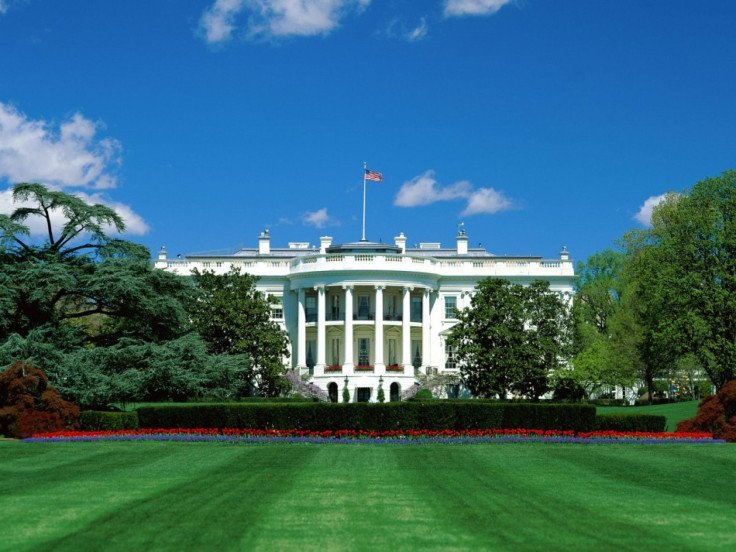White House Supports Bill Lifting Debt Limit to 2013

The White House said on Saturday it "strongly supports" a bill being considered in the House of Representatives that incorporates both Democratic and Republican ideas and would raise the debt limit to early 2013.
"It is imperative that the United States not default on the nation's obligations," the Obama administration said in a policy statement. "If the bill were presented to the President, his senior advisors would recommend that he sign it."
The bill would require two-thirds approval in the Republican-controlled House to pass.
Tense Talks
A bitter mood prevailed on Capitol Hill as lawmakers struggled on Saturday to find a compromise measure to lift the nation's $14.3 trillion debt, as talks to avert a ruinous default went down to the wire.
A day after the Republican-controlled House of Representatives passed a bill to cut the deficit and raise the ceiling on government borrowing, the debt saga shifted to the Democrat-led Senate, where lawmakers scrambled for a deal.
Senate Democrats pushed ahead with their own plan, but sought to attract bipartisan support by adding some elements of a proposal offered by Senate Republican leader Mitch McConnell.
But Senate Republicans appeared to have the votes to block that bill and the House quickly crushed the Democrats' proposal before the Senate acted on it, rejecting the measure 246 to 173 in a fast-tracked vote set up by the Republican leadership.
Back-channel talks held the best hope for a compromise.
President Barack Obama was to meet in the afternoon with Senate Democratic leader Harry Reid and the House Democratic leader Nancy Pelosi. McConnell also wants to meet with the White House.
Unless Congress raises the debt ceiling, the government would be barred from further borrowing after Tuesday, according to the U.S. Treasury, and could quickly run out of money to pay all its bills.
The world has watched with growing alarm as political gridlock in Washington has brought the world's largest economy close to an unprecedented default, threatening to plunge financial markets and economies around the globe into turmoil.
A letter rejecting Reid's plan was signed by 43 Senate Republicans, a sign the measure does not have the support needed to clear a 60-vote procedural hurdle in the Senate.
"What will they vote for? Do they have any ideas? Let me know," Reid said on the Senate floor.
Democrats hope to convince some Republicans who signed the letter to allow the bill to clear the hurdle, at which point they could change it, a Democrat aide said.
WHITE HOUSE TALKS
McConnell called on Reid to move up a vote on the Democratic plan that had been set for one a.m. EDT (0500 GMT) on Sunday so the two sides could begin talks with the White House.
"We can't do it by ourselves, it has to have the only person in America who can sign something into law," McConnell said.
Obama used his weekly radio and Internet address to urge lawmakers to strike a deal and head off what he has said would be an "inexcusable" default.
In a vote scheduled to send a message to Senate Democrats, the Republican-controlled House defeated a version of the Reid plan, which fell well short of the supermajority vote needed for quick passage.
The drawn-out standoff has put the United States at risk of losing its top-notch AAA credit rating. A ratings downgrade could prompt global investor flight from U.S. bonds and the dollar, raising borrowing costs for Americans when the economy is already frail, growing at an anemic rate of 1.3 percent in the second quarter, according to government data.
U.S. stocks endured their worst week in a year as the uncertainty made investors shy away from riskier assets and the dollar slumped to a record low against the safe-haven Swiss franc. Much worse could be in store if a U.S. debt deal doesn't appear to be on track by the time markets open on Monday.
Senate Democrats' debt-limit proposal, which would cut deficits by $2.2 trillion over 10 years, was revised by Reid to incorporate parts of a "backup plan" first proposed by McConnell. As envisioned, Obama would be given authority to raise the debt ceiling in three stages to cover U.S. borrowing needs through the 2012 elections when he is running for a second term.
Senate Democrats and Republicans agree about the main contours of the deal. The main point of contention remains what sort of mechanism should be in place to ensure that Congress will agree to further budget savings after a special committee makes recommendations, an aide said.
Republicans want the enforcement mechanism to be another debt limit vote late this year or early next year, while Democrats have proposed automatic tax hikes and spending cuts.
Obama says any plan that would require another showdown over the debt limit in a few months would be unacceptable because it would lead to economic uncertainty, putting a damper on jobs and growth.
With Republicans pushing to have the White House join the talks, Vice President Joe Biden, who has a rapport with McConnell from his years in the Senate, could emerge as a key player in final negotiations.
Unless there is major progress toward a debt deal, the U.S. Treasury could be forced on Sunday before Asian markets open to detail plans on which bills the government would pay if Tuesday's deadline is missed. Analysts believe it will stop other government spending to ensure bondholders are paid to avert a wide-scale financial crisis.
© Copyright Thomson Reuters 2024. All rights reserved.











